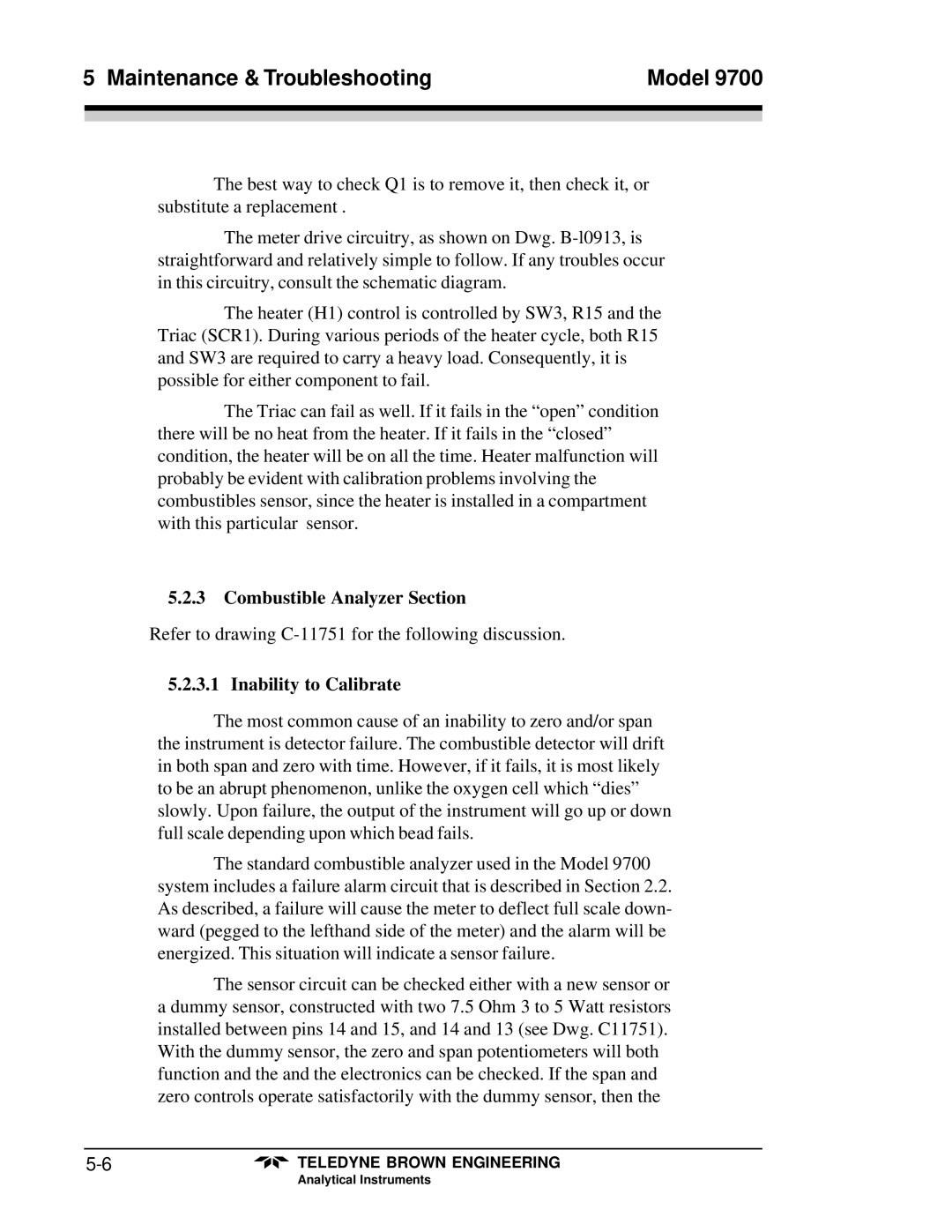
5 Maintenance & Troubleshooting | Model 9700 |
|
|
|
|
The best way to check Q1 is to remove it, then check it, or substitute a replacement .
The meter drive circuitry, as shown on Dwg.
The heater (H1) control is controlled by SW3, R15 and the Triac (SCR1). During various periods of the heater cycle, both R15 and SW3 are required to carry a heavy load. Consequently, it is possible for either component to fail.
The Triac can fail as well. If it fails in the “open” condition there will be no heat from the heater. If it fails in the “closed” condition, the heater will be on all the time. Heater malfunction will probably be evident with calibration problems involving the combustibles sensor, since the heater is installed in a compartment with this particular sensor.
5.2.3 Combustible Analyzer Section
Refer to drawing
5.2.3.1 Inability to Calibrate
The most common cause of an inability to zero and/or span the instrument is detector failure. The combustible detector will drift in both span and zero with time. However, if it fails, it is most likely to be an abrupt phenomenon, unlike the oxygen cell which “dies” slowly. Upon failure, the output of the instrument will go up or down full scale depending upon which bead fails.
The standard combustible analyzer used in the Model 9700 system includes a failure alarm circuit that is described in Section 2.2. As described, a failure will cause the meter to deflect full scale down- ward (pegged to the lefthand side of the meter) and the alarm will be energized. This situation will indicate a sensor failure.
The sensor circuit can be checked either with a new sensor or a dummy sensor, constructed with two 7.5 Ohm 3 to 5 Watt resistors installed between pins 14 and 15, and 14 and 13 (see Dwg. C11751). With the dummy sensor, the zero and span potentiometers will both function and the and the electronics can be checked. If the span and zero controls operate satisfactorily with the dummy sensor, then the
TELEDYNE BROWN ENGINEERING |
Analytical Instruments
